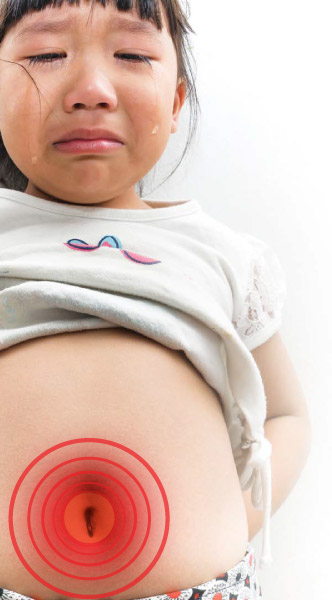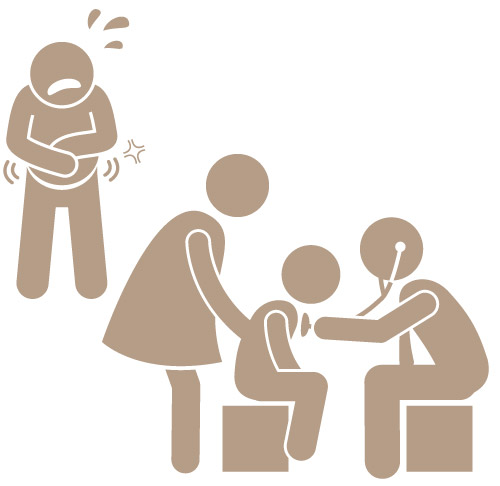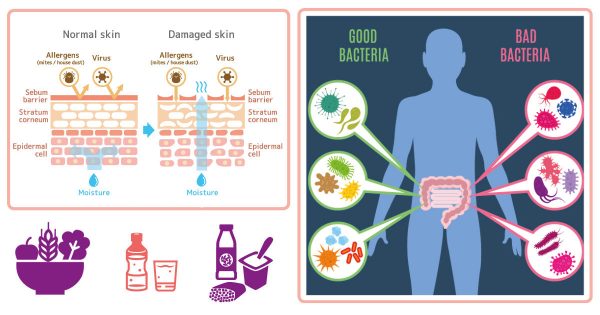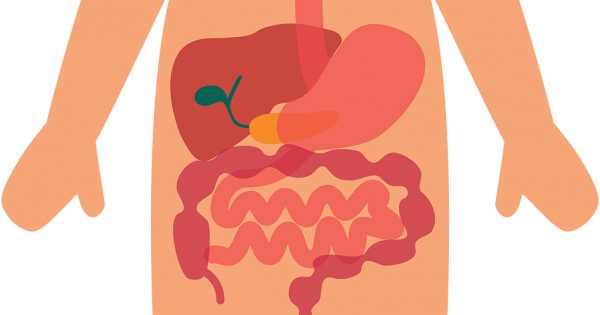Irritable Bowel Syndrome (IBS) is a functional disorder, which means that its symptoms do not have a detectable physical or organic origin. In adults as well as children, IBS is characterized by a group of symptoms which include cramping, tummy pain, flatulence, irregular bowel habits (diarrhoea, constipation), food intolerance, and bloating. The exact cause of IBS is unknown and it may be due to multiple factors.
There are many myths surrounding IBS, so it is important to note that:
- IBS is not a risk factor for other serious GI diseases, such as inflammatory bowel disease (Crohn’s disease or ulcerative colitis) or colon cancer.
- People with IBS don’t die early, in fact, they can live just as long as a person without the disorder.
- IBS does not affect other organs in the body such as the heart, liver or kidneys.
Nevertheless, in IBS, health related quality of life is affected. This makes IBS a particularly troublesome disorder, because it disrupts a patient’s ability to live a happy and healthy, normal life.
When to Seek Help
Some IBS symptoms are common in children and having it once in a while is no cause for alarm. Irregularities in your child’s bowel habits – which is usually accompanied by discomfort and cramping – may be the only way for you to detect a problem.
Bowel irregularities to look out for:
- Tummy discomfort relieved after a bowel movement.
- Too many or too few bowel movements compared to before.
- Stool consistency that seems loose or hard and lumpy.
If some of these irregularities occur frequently, causing disruption to daily life, take your child to see a doctor. A specialist should be able to identify IBS based on your child’s symptoms, and the elimination of other possible diseases through various medical tests.
Tips for Children with IBS
At present, there is no immediate cure for IBS but its symptoms can be managed and/or prevented. IBS affects different people differently, so there is no single treatment that will work on everyone. Therefore, apart from medication, much of the effort to treat IBS symptoms focuses on lifestyle, diet and reduction of stress.
- Eat more dietary fibre and include different types of fibre. Fibre helps pull water from the colon, making stool softer and easier to pass. In some patients, especially very young children, it may worsen the symptoms, so it’s important to ask your child’s doctor if this is a viable option for him/her.
- Avoid excessive sugar and sugar substitutes (artificial sweeteners) like sorbitol (found in chewing gum or carbonated drinks), which can cause increased gas, bloating, cramping and diarrhoea.
- Eat a balanced diet and drink plenty of water. Avoid or reduce caffeinated and carbonated drinks.
- Don’t let them overeat, especially meals high in fat.
- Try not to rush through meals. Make time for leisurely family meals together with enjoyable family conversation.
- Encourage regular physical activity to regulate bowel movements and improve digestion. Physical activity as well as relaxation techniques or even a hobby can also help reduce a patient’s stress. Behavioural therapies may work for some IBS patients.
- Changes in your child’s diet or lifestyle must be done gradually to give time for his body to adjust.
- Encourage a regular rhythm in daily life, with proper meal-times and adequate sleep.
- Encourage your child to have self-confidence and to engage fully in constructive and valuable activities such as reading good books and sports.
An educational contribution by Malaysian Paediatric Association.









Comments